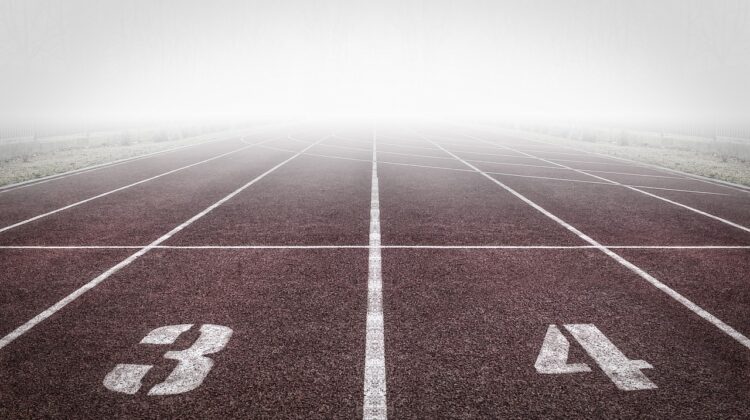
Sports in the current era have undergone significant changes and advancements due to various technological and societal factors.
Table of Contents
How sports makes difference in Personal life?
Sports can make a significant difference in personal life in many ways. Here are a few examples:
- Physical Health: Regular participation in sports can improve overall physical health by promoting cardiovascular fitness, muscle strength, and flexibility. This can lead to a reduced risk of chronic diseases like obesity, diabetes, and heart disease.
- Mental Health: Engaging in sports can have positive effects on mental health, including reducing stress, anxiety, and depression. It can also improve cognitive function and promote better sleep.
- Self-Confidence: Participating in sports can boost self-confidence by providing a sense of accomplishment, developing new skills, and being part of a team.
- Discipline and Time Management: Sports require discipline and time management, which can translate to other areas of life, such as school or work.
- Social Skills: Sports provide opportunities to develop social skills, including communication, teamwork, and leadership, which can benefit personal and professional relationships.
How sports makes difference in Social life?
Sports can have a significant impact on social life in many ways. Here are a few examples:
- Community Building: Sports can bring people together, creating a sense of community and shared identity around a team or sport. This can lead to stronger social bonds and a greater sense of belonging.
- Cultural Exchange: Sports can facilitate cultural exchange by bringing together people from different backgrounds and cultures, promoting understanding and tolerance.
- Volunteerism: Many sports organizations rely on volunteers to run events, coach teams, and perform other tasks. This can provide opportunities for people to give back to their community and develop leadership and teamwork skills.
- Economic Impact: Sports can have a significant economic impact on communities, generating revenue from ticket sales, merchandise, and tourism. This can create jobs and support local businesses.
- Social Justice: Sports can be a platform for social justice, with athletes and teams using their influence to advocate for causes like racial equality, gender equality, and LGBTQ+ rights.
Sports for physical fitness
Sports can be an excellent way to improve physical fitness. Here are some ways that sports can benefit physical health:
- Cardiovascular Health: Most sports involve some form of cardio exercise, which can improve cardiovascular health by increasing heart rate and improving blood circulation.
- Muscle Strength: Sports often require the use of multiple muscle groups, leading to improved muscle strength and endurance.
- Flexibility: Many sports involve stretching and movement that can improve flexibility and range of motion.
- Weight Management: Sports can be an effective way to manage weight by burning calories and promoting a healthy metabolism.
- Bone Density: High-impact sports like basketball, soccer, and tennis can improve bone density, reducing the risk of osteoporosis.
- Reduced Risk of Chronic Diseases: Regular participation in sports can reduce the risk of chronic diseases such as obesity, diabetes, and heart disease.
Sports for mental fitness
Here are some ways that sports can benefit mental health:
- Stress Reduction: Exercise, including sports, can be a powerful tool for reducing stress by releasing endorphins, reducing cortisol levels, and promoting relaxation.
- Improved Mood: Regular physical activity, including sports, can improve mood and reduce symptoms of anxiety and depression.
- Self-Confidence: Sports can help to build self-confidence by providing a sense of achievement and accomplishment, and by helping individuals to develop new skills and abilities.
- Cognitive Function: Regular physical activity has been shown to improve cognitive function, including memory, attention, and learning.
- Social Interaction: Participating in team sports can provide opportunities for social interaction, which can help to reduce feelings of loneliness and isolation.
- Better Sleep: Exercise, including sports, can improve sleep quality and duration, which can have a positive impact on mental health.
How can games can make a person better?
Games can have many positive effects on a person and can help them to become better in various ways. Here are some examples:
- Improved Cognitive Function: Games can help to improve cognitive function, including memory, attention, and problem-solving skills. Playing games can help individuals to think more critically and strategically, which can translate to other areas of life.
- Increased Creativity: Many games require creativity and imagination, which can help to foster a creative mindset in individuals. This can lead to improved problem-solving skills and increased innovation.
- Better Social Skills: Games can provide opportunities for social interaction, which can help individuals to develop better social skills, including communication, teamwork, and leadership.
- Improved Mood: Playing games can be a fun and enjoyable activity, which can help to improve mood and reduce stress and anxiety.
- Learning Opportunities: Games can provide opportunities for learning new skills and knowledge in a fun and engaging way.
- Increased Resilience: Games often require persistence and perseverance, which can help individuals to develop greater resilience and determination.
